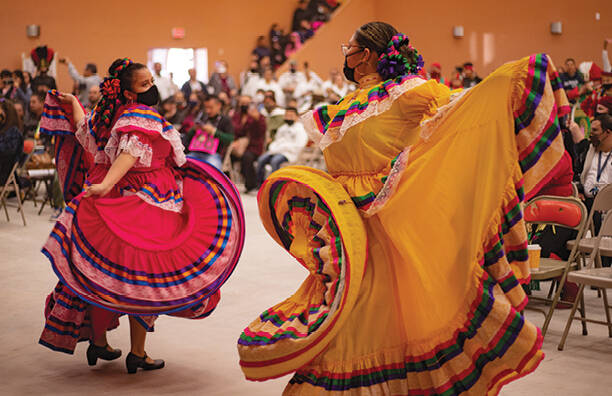Editors’ note: This fall, America Media released the groundbreaking documentary “People of God: How Catholic parish life is changing in the United States” with the aim of sparking a national conversation about the diverse ways the Catholic faith is lived out across the country. To help facilitate those conversations—in your parish, with your family or in the comments section—Jim McDermott, S.J., has offered a reflection on each of the four segments of the film as well as a number of discussion questions. You can read Part I below, and follow the links for Part II, Part III and Part IV.
One of the great things about America Media’s new documentary “People of God: How Catholic parish life is changing in the United States” is that it brings up so many different issues and ideas critical to life in the church in the United States today. Each parish considered is like a mirror held up to ourselves. Learning about them is like attending a seminar where you get to see other Catholics share their best practices on living in the church.
Over the next four weeks, I am going to look at some of the struggles and insights raised by each parish. Hopefully each article will provide fodder for conversation, perhaps in your own parish. Each piece ends with some questions that might stir reflection.
In its first part, “People of God” looks at the combined churches of St. Mary and St. Juan Diego in the Chandler suburb of Phoenix, Ariz. The community has 7,000 families, with more coming every day.
As the film points out, the expansion in communities in the South and West is largely due to the migration of Spanish-speaking people from south of the border. This has put churches in places like Chandler in the position of maintaining two distinct communities—the Anglo and the Spanish-speaking. As parish leader Armando Ruiz says in the film, immigrant communities represent a great opportunity for parish life, a fresh take and vitality: “But it has to be developed. It has to be listened to.”
Life in a multicultural parish is like a marriage: It can only work if people are listening to each other.
And the challenge goes both ways. The Anglos who live in a parish that is changing may feel overwhelmed by what’s happening. They may be alienated by the fact that they don’t speak the other language or don’t share the same faith expressions. In the film we see the Honor Your Mother parade, a gorgeous celebration of faith and Mexican American culture through downtown Phoenix for the feast of Our Lady Of Guadalupe. Mr. Ruiz shares his hope that the parade can be both a source of hope and faith for the Spanish-speaking people of Phoenix and a vehicle for bringing Anglo and Spanish-speaking Catholics together. After all, what could be a more appropriate source of unity than a love for Our Lady?
But Anglo Catholics by and large do not turn up for the event. It’s the kind of thing that happens in multicultural parishes all the time, and it can lead to resentment and a deepening of the sense of separation. Carolina Uribe, a pastoral minister at St. Mary’s, speaks of the shock and hurt that Spanish-speaking parishioners feel when Anglo community members complain about immigrants breaking the law or inundating their communities while these people are in need of so much help.
Listening to the stories of St. Mary and St. Juan Diego, it’s clear that life in a multicultural parish is like a marriage. It can only work if people are listening to each other and making sacrifices for one another.
Questions for reflection and conversation:
- Are there separate communities within your parish? What’s the relationship between them like?
- What is done within your community to bring people together? What gets people out of their individual silos? And what makes them retreat back into them?
- Are there things in your community that need healing, or events or actions that continue to fester in some way? What might help heal those wounds?
- Is there anything in the actions of other people in your community that puzzles or bothers you? Why? Have you ever tried to learn from the people involved?
- Are there other places in your diocese or your secular community where you see different ethnic groups or political affiliations integrating well together—or failing miserably? What can you learn from them?
Listen next:
On this bonus episode of the Jesuitical podcast, hosts Ashley McKinless and Zac Davis speak with Jim McDermott, S.J., and Sebastian Gomes, the producer of “People of God,” about the growing church in the Southwest.








